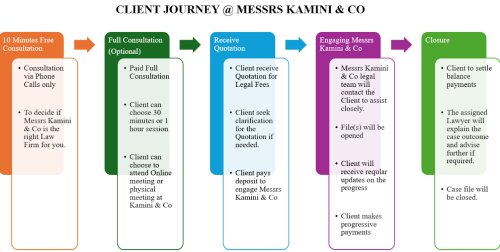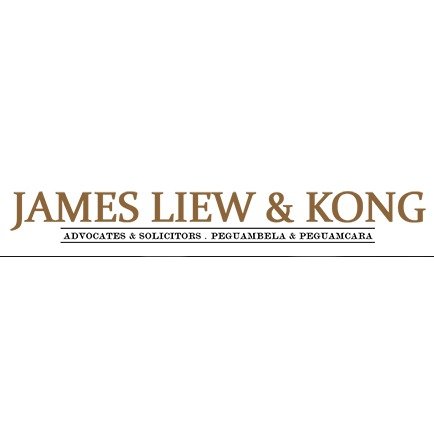Best Education Law Lawyers in Malaysia
Share your needs with us, get contacted by law firms.
Free. Takes 2 min.
Or refine your search by selecting a city:
List of the best lawyers in Malaysia
About Education Law in Malaysia
Education Law in Malaysia encompasses a wide range of legal issues pertaining to the education system, including the rights and responsibilities of students, teachers, and educational institutions. It includes the regulation of schools, both public and private, and covers the legal framework that governs educational policies, standards, and school governance. The Education Act 1996 is a key piece of legislation in Malaysia that outlines the structure, curriculum, and administration of the national education system. This law influences many aspects of education, from primary schooling through tertiary institutions, and includes provisions for special education needs.
Why You May Need a Lawyer
There are several situations where you might need legal assistance with Education Law in Malaysia. Some of these include:
- Ensuring compliance with educational standards and regulations for new or existing educational institutions.
- Addressing disciplinary actions or disputes involving students, educators, or school management.
- Navigating issues related to special education services and inclusion.
- Handling cases of discrimination or harassment within educational settings.
- Assisting with issues related to the rights of foreign students or expatriates.
Local Laws Overview
In Malaysia, several key aspects of local laws are particularly relevant to Education Law. The Education Act 1996 is pivotal, covering the establishment and registration of schools, national curriculum standards, and the teaching of compulsory subjects such as Bahasa Malaysia. The Private Higher Educational Institutions Act 1996 governs the operations of private educational institutions, ensuring that they meet the required educational standards. Furthermore, the Universities and University Colleges Act 1971 regulates public universities and their governance. Together, these laws ensure that educational bodies operate within a structured framework, protecting the interests of students and educators alike.
Frequently Asked Questions
What is the Education Act 1996?
The Education Act 1996 is a fundamental law governing the education system in Malaysia. It outlines the roles and responsibilities of educational institutions, sets national curriculum standards, and establishes guidelines for school operations.
Who regulates educational institutions in Malaysia?
Educational institutions in Malaysia are primarily regulated by the Ministry of Education for primary and secondary schools and the Ministry of Higher Education for tertiary institutions.
What rights do students have under Education Law in Malaysia?
Students have the right to access education, a safe learning environment, and protection from discrimination and harassment. The law also ensures that students receive education that meets national standards.
How are educational disputes resolved?
Disputes can be resolved through dialogue and mediation, or if necessary, through legal proceedings. Many issues are initially addressed by the school's board or the Ministry of Education.
What is the role of the Private Higher Educational Institutions Act 1996?
This Act regulates the operation of private higher educational institutions, ensuring that they comply with national standards and provide quality education.
Are there provisions for special education needs in Malaysia?
Yes, the Education Act 1996 includes provisions for special education requirements, ensuring that students with disabilities receive education suited to their needs.
Can foreign students receive education in Malaysia?
Yes, Malaysia offers educational opportunities for foreign students, with many institutions providing programs in English. However, there are specific regulations and visa requirements that need to be adhered to.
What steps should I take if I believe my child is facing discrimination in school?
If you believe your child is facing discrimination, you should first contact the school to discuss your concerns. If the issue remains unresolved, seeking legal advice might be necessary to ensure your child’s rights are protected.
Is homeschooling legal in Malaysia?
Homeschooling is not widely regulated in Malaysia, but parents wishing to homeschool must notify the Ministry of Education and comply with any specific guidelines set forth by them.
What legal protections are in place for teachers in Malaysia?
Teachers in Malaysia are protected under employment laws that ensure fair treatment in terms of contracts and working conditions. There are also specific guidelines for handling grievances or disciplinary actions.
Additional Resources
For more information or assistance with Education Law in Malaysia, consider reaching out to the following resources:
- Ministry of Education Malaysia: Oversees the national education policy and provides guidance on educational matters.
- Ministry of Higher Education: Manages tertiary education institutions and policies.
- Legal Aid Bureau: Offers legal assistance to those who qualify for aid, including issues related to education law.
- Bar Council Malaysia: Can provide referrals to qualified lawyers specializing in education law.
Next Steps
If you require legal assistance in Education Law, consider the following steps:
- Consult with legal professionals who specialize in Malaysian education law for tailored advice regarding your situation.
- Contact relevant authorities such as the Ministry of Education or local educational boards to address initial concerns or complaints.
- Consider seeking mediation or alternative dispute resolution methods before pursuing litigation, as these can provide more amicable solutions.
- Document all communications and interactions regarding your issue thoroughly, as this information can be invaluable in legal proceedings.
Lawzana helps you find the best lawyers and law firms in Malaysia through a curated and pre-screened list of qualified legal professionals. Our platform offers rankings and detailed profiles of attorneys and law firms, allowing you to compare based on practice areas, including Education Law, experience, and client feedback.
Each profile includes a description of the firm's areas of practice, client reviews, team members and partners, year of establishment, spoken languages, office locations, contact information, social media presence, and any published articles or resources. Most firms on our platform speak English and are experienced in both local and international legal matters.
Get a quote from top-rated law firms in Malaysia — quickly, securely, and without unnecessary hassle.
Disclaimer:
The information provided on this page is for general informational purposes only and does not constitute legal advice. While we strive to ensure the accuracy and relevance of the content, legal information may change over time, and interpretations of the law can vary. You should always consult with a qualified legal professional for advice specific to your situation.
We disclaim all liability for actions taken or not taken based on the content of this page. If you believe any information is incorrect or outdated, please contact us, and we will review and update it where appropriate.
Browse education law law firms by city in Malaysia
Refine your search by selecting a city.
















